In 1995, to recognize the contribution to Canadian society, by people of African descent, the House of Commons recognized Black History Month, in a motion introduced by the Honorable Jean Augustine, the first Black woman elected to Parliament.

In 2008, Senator Donald Oliver, the first black man appointed to the Senate, made a motion to have the Senate recognize Black History Month. Both motions received unanimous approval.

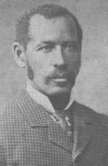
The first black man to hold public office in Canada was Mifflin Gibbs. (Kilian, 2018) Born in Philadelphia, Pennsylvania, April 17, 1823, Mifflin Gibbs started working at the age of 8 to support his younger brothers and widowed mother. He was a determined young man and educated himself by becoming a member of Black literary societies. Mr. Gibbs worked for the underground railroad, a secret network of safe houses and routes for escaped slaves and, for a time, he traveled with Frederick Douglass, an abolitionist.
Mr. Gibbs sought better opportunities in California and, while there, he met Governor James Douglas of British Columbia. 
Governor Douglas, whose mother was a free woman of color, sought immigrants, sympathetic to Britain. These prospective immigrants sought a friendlier environment to that of America. (Ormsby, 2008) In 1858, with a promise of protection, land ownership and British citizenship after five years, many Black families moved from California to the Crown colony of Vancouver Island.
When he arrived in the colony Mr. Gibbs saw opportunity. He purchased property and found a business partner. They set up shop and competed with the Hudson’s Bay company, selling supplies to miners on their way to the Fraser River gold fields.
Mr. Gibbs became involved in colony politics and eventually was elected to the Victoria, British Columbia town counsel in 1866. Although Mr. Gibbs spent only ten years in the colony, the impact he had on it was impressive. Politically active, he ensured enfranchisement of black settlers who had come to the colony under the promise of receiving the vote. In 2016 Mifflin Gibbs was honoured by the City of Victoria, British Columbia, when it declared November 19, Mifflin Wistar Gibbs Day.
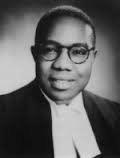
Leonard Braithwaite, born in Toronto, Kensington Market, October 23, 1923 was the first African Canadian elected to the Ontario Provincial Legislature in 1963. During WWII he served as a mechanic in No. 6 Bomber Command in Yorkshire, England. After the war he continued with his education and graduated from Osgoode Hall Law school in 1958. He started his political career in 1960. Both the Progressive Conservatives and the NDP attempted to have him join their parties, but instead he ran as a Liberal and was elected the first Black parliamentarian in Canada in 1963. (Yarhi, 2017)
While in office, Mr. Braithwaite fought for minorities and for gender equality. When he left politics, he returned to his law practice and continued in law until he passed away March 28, 2012.
Finally, Viola Desmond, (Bingham, 2017) recently honoured with her likeness on the Canadian ten-dollar bill. The incident for which she is remembered possibly assisted in change in Nova Scotia.
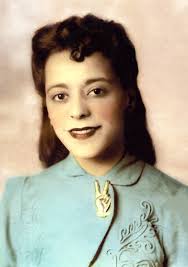
Ms. Desmond, born July 6, 1914, lived in Halifax with her parents and 10 siblings. An entrepreneur, she opened Vi’s Studio of Beauty Culture. She later opened Desmond School of Beauty Culture, a training center for women and where she sold the beauty products she created. Ms. Desmond was not known for her entrepreneurship as much as she was for a court trial due to the breakdown of her car.
In 1946 Ms. Desmond went to a movie theater while her car was being repaired. She purchased her ticket and proceeded into the main level to watch the show. As she entered a “whites only” area, she was told to move to the upper level of the theatre. She offered to pay the difference in the price of the ticket, but was refused. She was taken to jail and put on trial without the benefit of counsel. The charge was attempting to defraud the Provincial Government of a one cent amusement tax. The judge fined her $26.00, the equivalent of $357.00 in 2018.
Ms. Desmond received assistance from the Nova Scotia Association for the Advancement of Colored People (NSAACP) which raised money to fight her conviction. Carrie Best, of The Clarion Newspaper, also a woman of color, followed the case and kept the community abreast of the proceedings in Ms. Desmond’s trial.
Due to the injuries she received during her arrest, the doctor who attended her suggested she seek legal counsel. Her lawyer did not appeal the conviction but rather named the manager of the theatre and the theatre in a civil suit. The civil suit never made it to trial because the lawyer delayed too long to have the criminal conviction put aside. However, her counsel did not bill her for his services and the NSAACP was able to use the money they raised to fight segregation in Nova Scotia.
Canada had an all-black battalion in WWI which served in France alongside the Canadian Forestry Corps and many African Canadians also served in WWII such as Major Stephen Blizzard and Welsford Daniels.
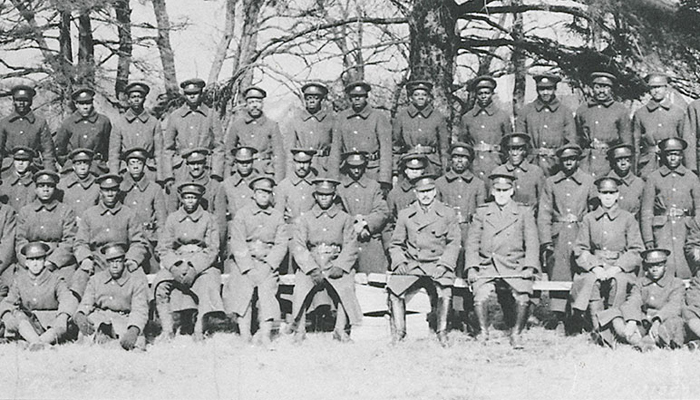
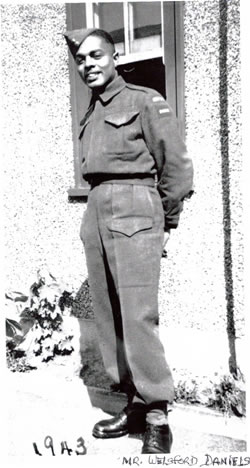

There is much more to tell about the history of African Canadians, their struggle and their contribution to Canadian Society in politics, medicine, business, arts, education and sports. These are but a few of those Canadians who, through perseverance and courage helped form the Canada we know today.
References
Bingham, R. (2017, October 26). Viola Desmond. Retrieved from The Canadian Encyclopedia: https://www.thecanadianencyclopedia.ca/en/article/viola-desmond
Kilian, C. (2018, September 07). Mifflin Gibbs. Retrieved from The Canadian Encyclopedia: https://www.thecanadianencyclopedia.ca/en/article/mifflin-gibbs
Ormsby, M. A. (2008, February 14). Sir James Douglas. Retrieved December 26, 2018, from The Canadian Encyclopedia: https://www.thecanadianencyclopedia.ca/en/article/sir-james-douglas
Yarhi, E. (2017, November 27). Leonard Braithwaite. Retrieved from The Canadian Encyclopedia: https://www.thecanadianencyclopedia.ca/en/article/leonard-braithwaite
